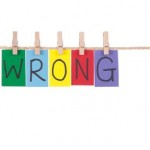Consumer debt? Non consumer debt?
Have mostly non consumer debt and you get a pass on the means test. Where else does the consumer/non consumer characterization matter: in Section 1301, where co debtors on a consumer debt are protected by the automatic stay.
Section 1301 limits the scope of the co debtor stay to consumer debts and protects individuals liable with the debtor on the debt from collection action. Note that the creditor is entitled to relief from the stay if the plan does not provide for the debt in full: after all, full payment was what the creditor bargained for in obtaining two obligors.
What’s a consumer debt
So, let’s look at what debts are “consumer” debts. Section 101(8) defines a consumer debt as one incurred primarily for a personal, family or household purpose. That’s some help.
The cases have refined that to hold that taxes are not consumer debts, reasoning that they aren’t voluntarily incurred. Debts incurred for a business, profit or investment purpose are not “consumer”. And there is some case law that tort claims are not consumer debts.
Consider whether fines, penalties, and sanctions may also be outside the consumer debt category since, like taxes and torts, they aren’t voluntarily incurred.
Why it matters
Don’t count on the co debtor stay to protect the debtor’s corporation from a joint debt, or to protect another individual on the guarantee of a business debt.
It’s worth noting that the exclusion of taxes from the stay keeps the clock ticking on the tax liability of a spouse.
I have used a Chapter 13 for one spouse, protecting all of the community property , to buy time while the clock continues to run on the spouse’s tax liability. The goal was to get to the point where the tax is no longer priority in a case to be filed by the non filer.
More
The co debtor stay: meet family and friends
Image courtesy Gene Hunt








